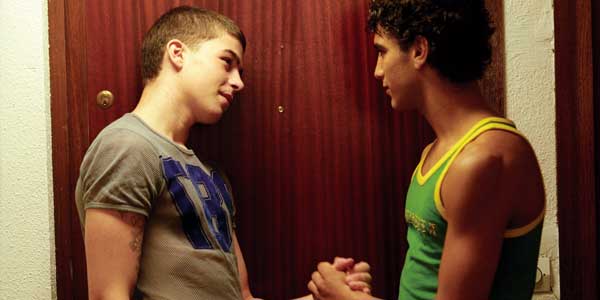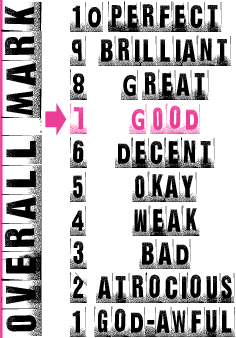
Director: Gael Morel
Running Time: 90 mins
Certificate: 15
Release Date: January 30th, 2012

The 2005 French flick gets a welcome re-release. Le Clan follows three young brothers, with the narrative split into three sections, each focussing on a different brother, but carrying on the overall story.
Things start off with middle-brother Marc (Nicolas Cazale), who’s a bit of a hard nut and on the edge of the drug dealing world. When a deal goes wrong, his life is suddenly in danger, which may have dangerous repercussions for both him and his dog. Older brother Christophe is fresh out of prison and trying to turn his life around, getting a job in a meat packing factory. Finally there’s Olivier, who’s carrying on a secret relationship with another young man, trying to find his way to happiness against the backdrop of his slightly wayward brothers and harsh father.
While Le Clan sometimes seems a little unclear on some of the motivations of its characters, it’s a powerful, vibrant movie that touches on all sorts of issues, from race and class to sexuality and gender. Nearly everything that affects one brother has an echo or reflection in another, which is a very neat way of raising and dealing with issues on film. One brother is in prison while another is well on his way, one brother is straight but wanks with his friends and shags a pre-op transsexual, while another is gay.
Director Gael Morel seems to have an absolute fascination with the male form, and the movie spends a lot of time looking at young guys in various states of undress. I’m not entirely sure whether there’s a great meaning behind this, but Morel certainly likes to linger on shots of shirtless young men working out.
It’s a very good movie, with plenty of drive. Sometimes it slightly loses track of its complex characters, so it’s difficult to know what the movie is getting at, but it always pulls itself back shortly afterwards to create a film that’s imperfect but has more than enough strengths to pull it through.
Overall Verdict: A great little film where its ambitions sometimes outpace its abilities, but which succeeds in creating a vivid picture of life for young people on the fringe of French society.
Reviewer: Tim Isaac





Leave a Reply (if comment does not appear immediately, it may have been held for moderation)